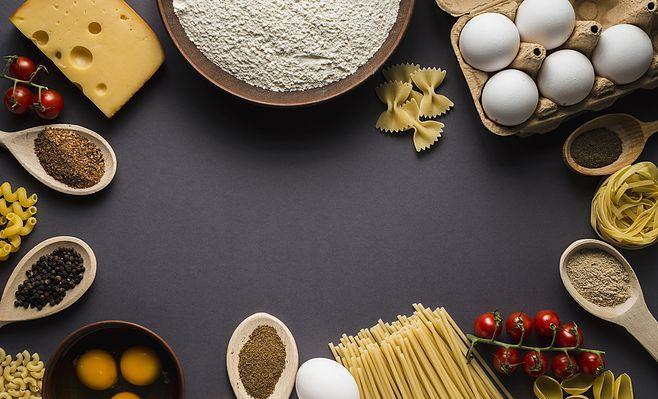Abstract: A few days ago, the Beijing Municipal Market Supervision and Administration Bureau notified 9 batches of unqualified food, involving problems such as excessive residues of agricultural and veterinary drugs, irregular use of additives, and microbial contamination.
China Food Safety Network News (reporter Zhong Yanping) a few days ago, the Beijing Municipal Market Supervision and Administration Bureau organized a sampling inspection of 763 batches of samples of 8 types of food such as beverages, grain processing products, edible agricultural products, etc., and found that 9 batches of food were unqualified, involving tofu, carp, ginger, bananas, etc.

Image source Network
The residue of 4 batches of food agricultural and veterinary drugs exceeded the standard
The announcement shows that the detection value of diazepam for carp operated by the Beijing Dahe Yanyan Aquatic Products Wholesale Department is 7.2 μg/kg. Diazepam is a sedative drug, mainly used for anxiety, sedative hypnosis, and can also be used for anti-epileptic and anticonvulsant. The National Standard for Food Safety The maximum residue limit of veterinary drugs in food (GB 31650) stipulates that diazepam is a veterinary drug that is allowed for therapeutic use, but must not be detected in animal foods.
The detection value of enrofloxacin for fresh aquatic products (sea bass) operated by Beijing Yujiawu Trading Co., Ltd. is 518100 μg/kg, but the Maximum Residue Limit of Veterinary Drugs in Food (GB 31650) stipulates that the maximum residue limit of Enrofloxacin in fish is 100 μg/kg. Enrofloxacin is a third-generation quinolone, which is a chemically synthesized broad-spectrum bacteriostatic agent for the treatment of skin infections and respiratory infections in animals, and is a special drug for animals.
Beijing Guanying is too familiar with the ginger operated by Restaurant Co., Ltd., and the detection value of thiotiazide is 2.2 mg/kg, which is several times higher than the standard value of 0.3 mg/kg. It is reported that thiamethoxam is an insecticide with touch, gastric toxicity and systemic effect, which can be rapidly absorbed into the plant body and conducted to the top in the xylem, which can control pests such as aphids, whiteflies, thrips, rice planthoppers and so on.
The bananas operated by Beijing Zhang Zhenquan Store have a detection value of imidacloprid of 0.18 mg/kg, which does not meet the standard of the maximum residue limit of 0.05 mg/kg of imidacloprid in bananas. Imidacloprid is an assortive insecticide that can be conducted between layers, has a touch killing and gastric toxicity effect, can better control stinging mouth organ pests, and can also control soil pests, termites and some biting pests.
The residue of 2 batches of chili sauce, tofu Zhongshan sorbic acid and its potassium salt and aluminum does not meet the regulations
The pepper sauce produced by Qingdao Qingluyuan Food Co., Ltd. and operated by Beijing Dadi Yonghe Trading Co., Ltd. has a detection value of 0.206 g/kg of sorbic acid and its potassium salt (in terms of sorbic acid), and the label of the unqualified product is marked "no pigment and no preservatives", that is, it cannot be detected, so it does not meet the explicit requirements of the product. Sorbic acid and its potassium salts are acidic preservatives, which have a good inhibitory effect on the activity of mold, yeast and aerobic bacteria. The National Standard for Food Safety The Standard for the Use of Food Additives (GB 2760) stipulates that the maximum use of the compound seasoning Zhongshan sorbic acid and its potassium salt (in terms of sorbic acid) is 1.0 g/kg.
Tofu produced by Shen jiuju tofu processing shop in Yongning Town, Yanqing District, Beijing, the residual amount of aluminum (dry sample, in terms of Al) was detected as 221 mg/kg, while the standard value was not more than 100 mg/kg.
1 batch of pastries of substandard quality
The nominal Dashun zhai brand walnut crisp (baked pastry) produced by Beijing Dashunzhai Food Co., Ltd. has a detection value of 12.7 mg/g for acid price (in terms of fat) (KOH), which is more than twice the standard value of 5 mg/g. Acid price mainly reflects the degree of rancidity of oils and fats in food. Excessive acid price will lead to food has a harrah's taste, and the aldehydes, ketones and acids produced when the standard is serious will destroy fat-soluble vitamins and lead to gastrointestinal discomfort.
2 batches of dried lifts and plates involved microbial contamination
According to the announcement, the dried produced by the nominal Jianhong Zhongtian (Beijing) Agricultural Technology Co., Ltd. and the mold do not meet the explicit standards of the product. Mold is a common name for filamentous fungi, meaning "moldy fungus". After the food is contaminated by mold, not only the color and taste may change, but the nutrients in it will also be destroyed, reducing its edible value, and some molds may also produce toxins in the food, endangering human health.
The disc used and disinfected by Beijing Yuezhongliang Catering Service Co., Ltd. detected coliform bacteria, and the National Standard for Food Safety Disinfectant Meal (Drink) Utensils (GB 14934) stipulates that the coliform bacteria in disinfectant meals (drinks) shall not be detected. It is understood that coliform bacteria are one of the commonly used indicator bacteria for food contamination at home and abroad. Coliform bacteria were detected in the dining utensils, indicating a greater possibility of contamination by intestinal pathogenic bacteria.